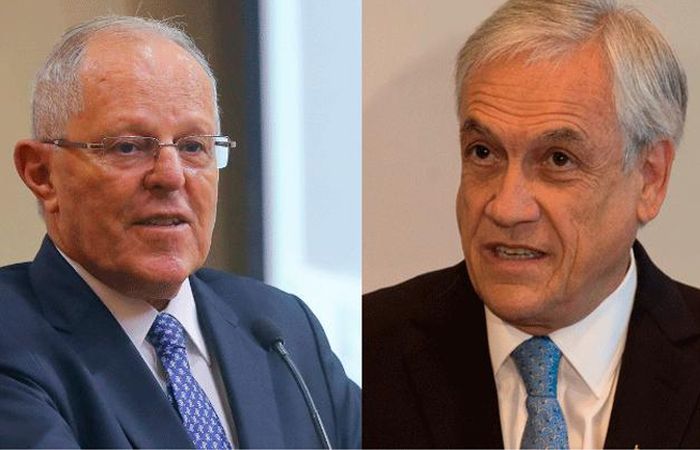
The resignation of the host of the Summit of the Americas in mid-April and one of the promoters of the so-called Lima Group, which opposes the government of Venezuela, is bad news for Chile
When Sebastian Piñera was about to conclude its previous term at La Moneda Palace, a ruling by the International Court of Justice (ICJ) in 2014 made Chile look bad in the eyes of Peru.
Although reactions were confusing at the beginning, the truth is that the court in The Hague decided to modify the maritime border between Chile and Peru in an unappealable sentence that was received as a sort of intermediate solution.
Lima obtained less than what it wanted, but it reduced the Chile’s borders, although the country did not lose as much as it might have lost.
The next few years, including 2014, were more tense and complicated than expected in a relationship full of ups and downs between Ollanta Humala and Michelle Bachelet, until the weakening of the Peruvian ruler eased the tensions.
After Pedro Pablo Kuczynzki took office, ties were friendlier, and he even visited Chile on two occasions.
If Kuczynzki achieved a significant rapprochement with Socialist President Bachelet, it could not be less with a right-wing ally and despite the crisis in Peru, so he visited Chile again to attend Piñera’s presidential inauguration less than two weeks ago.
The resignation of the host of the Summit of the Americas in mid-April and one of the promoters of the so-called Lima Group, which opposes the government of Venezuela, is bad news for Chile.
The articulation in Lima of the Summit with a last-minute president, Martin Vizcarra, the first vice-president, creates uncertainty, above all in an already heated atmosphere.
The Peruvian head of State’s rejection of Venezuelan President Nicolas Maduro’s participation, the parallel forums being held in Lima and the announcement of U.S. President Donald Trump’s trip are elements to predict that the Summit of the Americas will be pretty hectic.
How much the situation will change with Vizcarra is an unanswered question, but it could be analyzed with regard to the great accelerator that is the Pacific Alliance (Chile, Mexico, Colombia and Peru) in its effort to become a predominant group in the region.
Another major aspect is the relationship with Chile, with a permanent truce decreed by Kuczynzki. It is not good for the Piñera administration, which is responding to a lawsuit in The Hague by Bolivia, which demands sovereign access to the sea.
In the absence of Foreign Minister Roberto Ampuero, who is attending the hearings at the ICJ, Justice Minister and Acting Foreign Minister Hernan Larrain just said, ‘We respect the decisions made by the countries’. He assured that the Government is ‘a loyal supporter of the principle of non-interference in internal affairs’.
Anyway, he regretted ‘the determination of the Peruvian president who has been a friend of Chile during his term. We have succeeded in making progress in cooperation, generating trust and achieving more integration between the two countries.’
‘We expect that in the future, we can continue to work under the same spirit (…), I also want to express that it is our will that the process of transition is very peaceful and in tune with the Constitution and the laws,’ Larrain noted.
 Escambray ENGLISH EDITION
Escambray ENGLISH EDITION





Escambray reserves the right to publish comments.